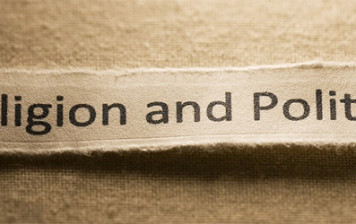
JAMIE TARABAY: Some statements concerning Jews or Israel in your early sermons have been perceived as anti-Semitic. How do you respond to this?
Fethullah Gulen: We can consider this matter from different angles. First, it is always possible for a person to go through an evolution in his thinking. In an article I wrote years ago I asked: Are you today the same person as yesterday? And are your interlocutors the same people as yesterday? Neither you are exactly the same person, nor are your interlocutors, which means tomorrow neither of you will be the same person either.
The actions and attitudes of your interlocutors affect your views and expressions. During the interfaith dialogue process of the 1990s, I had a chance to get to know practitioners of non-Muslim faiths better, and I felt a need to revise my expressions from earlier periods.
I sincerely admit that I might have misunderstood some verses and prophetic sayings. I realized and then stated that the critiques and condemnations that are found in the Koran or prophetic tradition are not targeted against people who belong to a religious group, but at characteristics that can be found in any person.
In some cases my words have been taken out of context. Sometimes people with questionable intentions selectively extract statements from my speeches and writings without regard to the context or circumstances. My efforts for interfaith dialogue were criticized as softening Muslims’ perspectives on Jews and Christians. I have not done anything that I did not believe to be in the footsteps of the Prophet Mohammed. He was the one who stood for a funeral procession of a Jewish resident of Medina, showing respect for a deceased fellow human being.
It is a fact that I criticized certain actions of Israel in the past. But in my mosque sermons, I also categorically condemn terrorism and suicide bombings that target innocent civilians.
Source:
The Atlantic, “A Rare Meeting With Reclusive Turkish Spiritual Leader Fethullah Gulen,” August 14, 2013
Tags: Fethullah Gulen | Fethullah Gülen's philosophy | Israel | Jewish Muslim Dialogue |Related Articles

Fethullah Gülen’s educational philosophy in action
Fabio Vicini The members of the movement I met and frequented in Istanbul during my brief fieldwork in summer/autumn 2005, are all teachers in a school linked to…

Fethullah Gülen’s view on mixing politics and religion
Politicizing religion is always a reductionist endeavor: it turns the mysterious relationship between humanity and the Divine into an ideology. Gülen says, “Religion is the relationship between people…

Solving the Paradox: How to be a Balanced Muslim
Maimul Ahsan Khan This is Gulen’s most unique achievement. He did not give up his own religious practice in any areas of his activities and also extended his…
